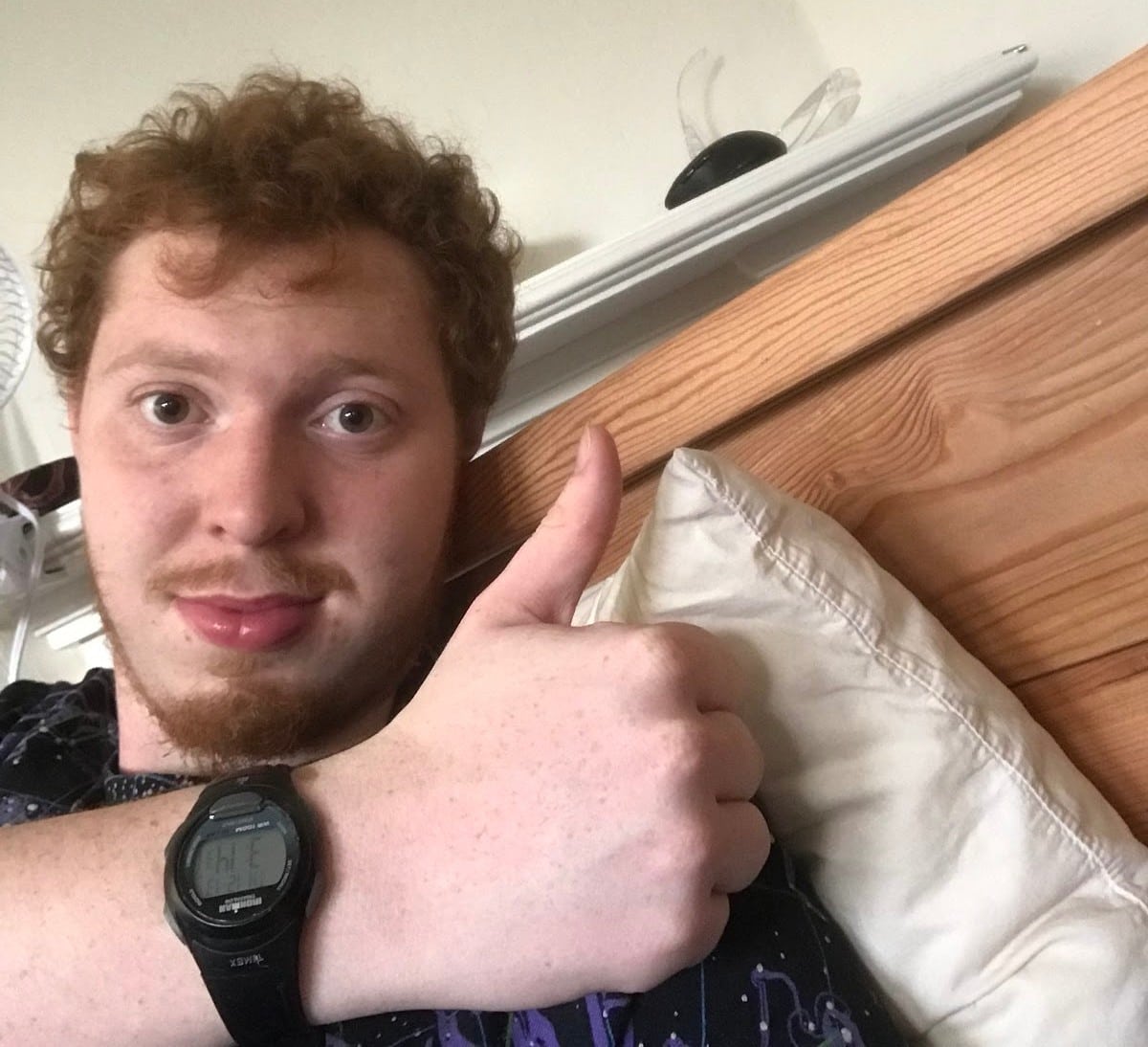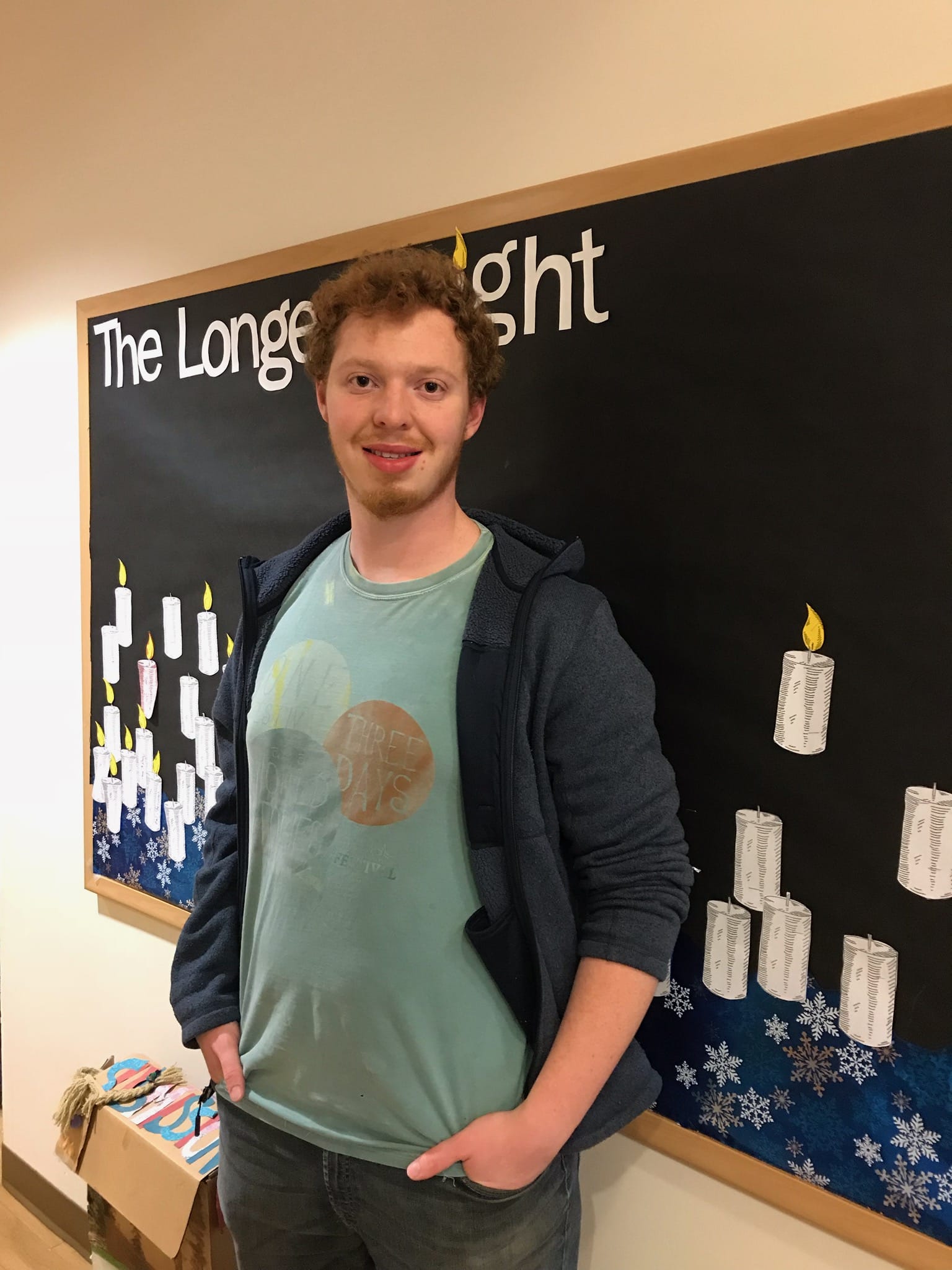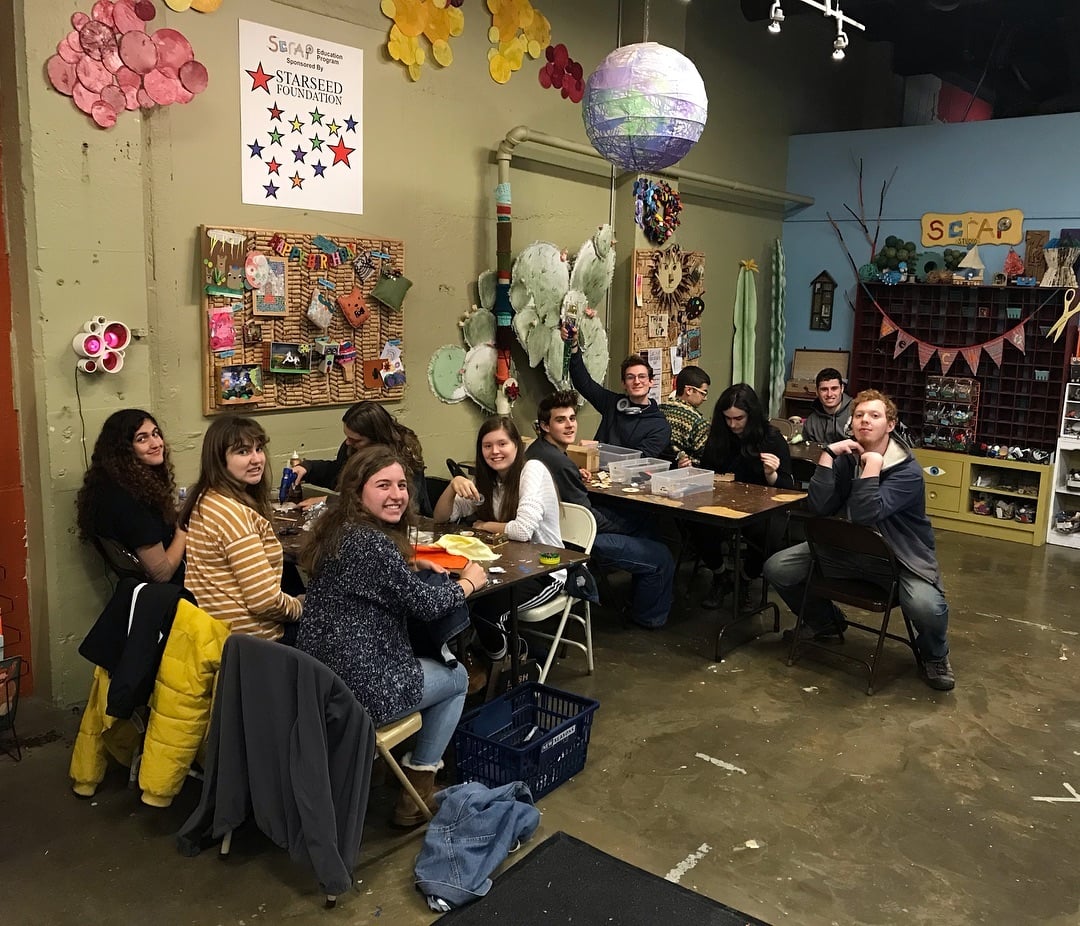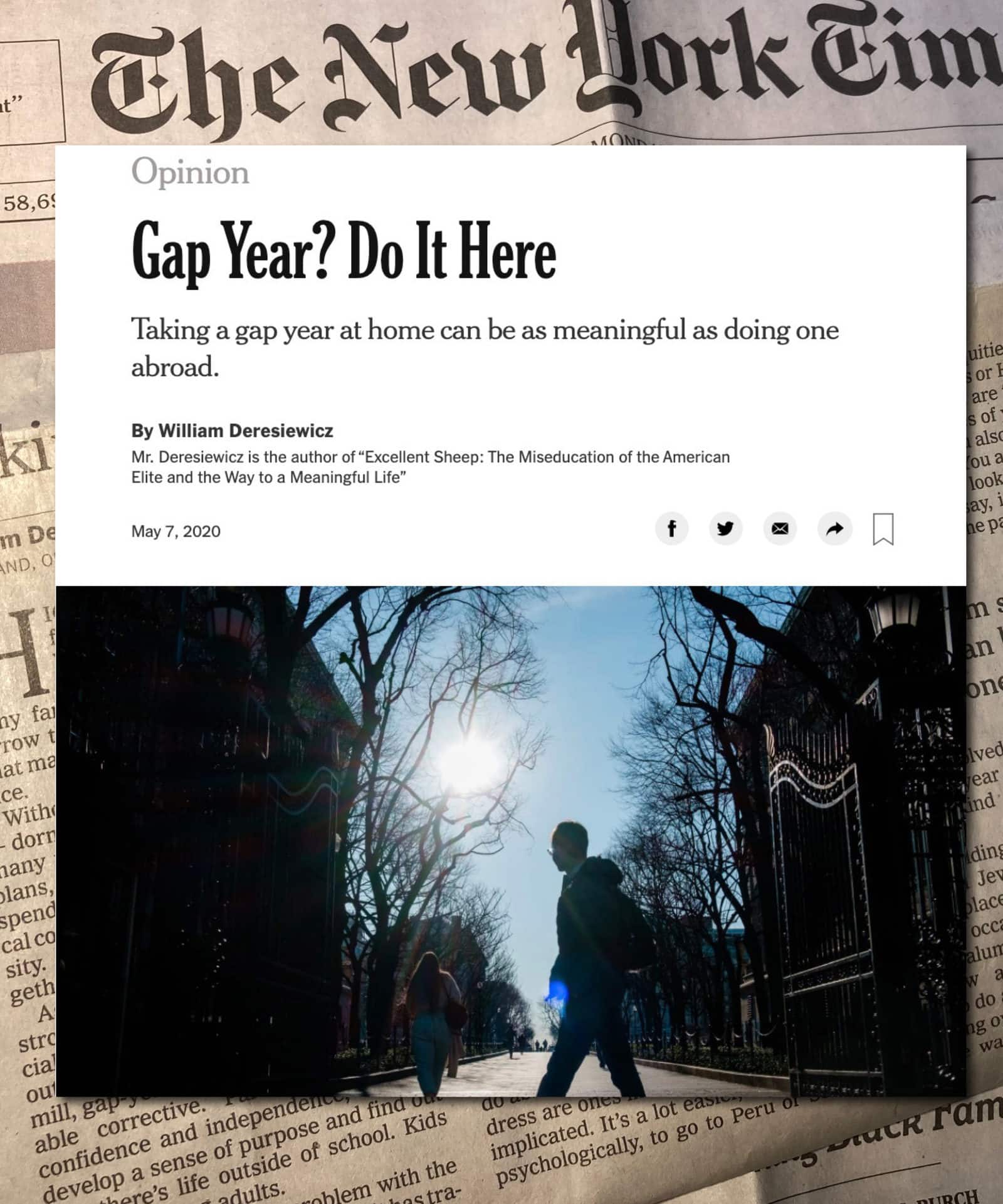
Izzy nestled at home, in his bed he built with his own two hands during Tivnu construction training.
“The hardest part about traveling is coming home.”
I have no idea where that saying came from or even how I first heard it. Still, it’s been on my mind the last few weeks, if only because “home” has recently become one of those nebulous, hard to grasp one-word concepts for me, along with “organization” or “bedtime.”
Home; the place where the heart is, the place where, when you go there, they have to take you in, the place where, if you don’t have it, everything else starts to walk away, too.
I’ve lived in the same house for almost my entire nineteen-year stint on this planet, and I could probably even go so far as to say I’ve spent most of my breathing hours inside my house. But then I sat in the Uber bound for the Portland airport at 4 AM on Sunday, November 18, the one I shared with the friend/ housemate I had stayed up all night with and the chatty driver whose name I think was Chris, my under-packed and overlarge backpack rocking in the trunk. I was thinking about going home, and I realized I didn’t think about going back to the DC area as returning home for Thanksgiving break. It felt like a vacation, a retreat, not a return.

Izzy hanging out at work at The Living Room
The hardest part about traveling is going home.
Tivnu is an intense program in obvious ways, but it’s the little things like sleeping in the same room for a few months that you don’t always think about that add to the intensity. Things like getting used to a certain kitchen perpetually stocked for 8 people, quirks of the house like a drawer that requires you to push in a certain way to close it, a certain morning routine when you have to brush your teeth, swallow your pills and get on your bus before your internship while sharing a bathroom with three other people. Our house has become that certain place where, when you go there, they have to take you in.
At the Old Town Recovery Center (also called the Living Room), the small mental health and addiction clinic where I work Mondays and Fridays, staff tend to use the word “houseless” to describe the condition of being without housing, the status still largely referred to as “homelessness” by most circles of society. The newer term seems to have a lot of traction with social activists in Portland. I’ve heard it echoed by workers at Sisters of the Road and Street Roots, both organizations heavily involved with houseless communities. It isn’t some academically invented, arbitrary rebranding of the phenomenon, but a relabeling that, as far as I’ve seen, was birthed and raised by houseless citizens themselves. To be without a place of shelter to reliably sleep is not to be without a home, a sanctuary, a family. It follows, then, that home need not simply be where you’ve lived your entire life. It can be a choice I made, a series of house meetings and Shabbat dinners, a bed on a bedframe I made with my own two hands and sleep on and still wonder at it never breaking.

The T5 Tivnoodles making Judaica for their homes at SCRAP, a used craft supplies store in Portland
Maybe home is more complicated than that. The place where I was raised still means something to me, but it’s just that. It’s the place where I was raised, no longer a home but a past. I enjoyed my time there for Thanksgiving, the old haunts and streets and people I knew, but they weren’t exactly mine anymore. I couldn’t lean on them with the weight of somebody who knows they belong, knows there are holes where they fit.
Is it possible that home is the place you make your mark, the place that wasn’t simply handed to you but filled out by you, stretched to fit the awkward contours of your life and habits and problems you keep promising to work on? I think it is for me. Even though I may never live in Portland again after this year, I know it’ll be the place I realized what home meant.
It was hard, getting on the plane back from my childhood home to PDX. I felt like I was waking up from a disjointed but pleasant dream, the last throes of a childhood, or just the last eye-twitches of REM. Yeah, it was hard, but it was to be expected.
The hardest part about traveling is coming home.
Follow Us
Sign Up For Updates
Taking a gap year in the US can be as meaningful as doing one abroad.
 Featured in The New York Times
Featured in The New York Times